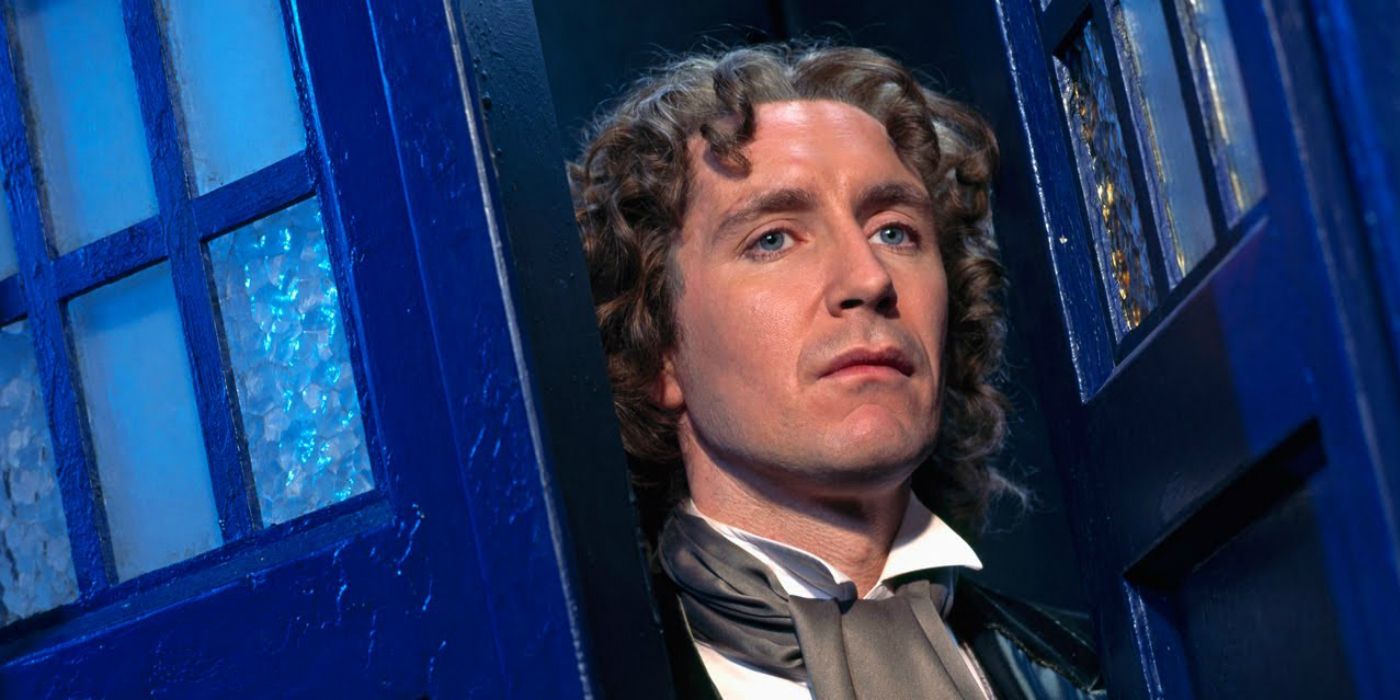Star Trek's Leonard Nimoy almost directed the 1996 Doctor Who TV movie. In 1989, the BBC canceled Doctor Who, the world's longest-running science-fiction TV series. Behind the scenes, though, there were still many writers, directors, and producers who'd grown up with Doctor Who and wanted to bring it back. One of these was producer Philip Segal, who wanted to launch a new, American-produced TV series.
Only one network showed any interest – Fox – and unfortunately for Segal, they would only sign off on a single made-for-TV movie. Ultimately directed by Geoffrey Sax, this opened with the regeneration of Seventh Doctor Sylvester McCoy into a new incarnation of the enigmatic Time Lord, with the Eighth Doctor played by Paul McGann. The Doctor Who movie sadly failed; in the U.S., only 5.6 million people tuned in, an audience of just 9 percent. Segal had hoped this would be the proof-of-concept for a relaunch, but it never materialized. Oddly enough, the Doctor Who TV movie's reputation has improved with time, and McGann is now generally seen as an iconic Doctor – in part because of his performances in Big Finish audio-dramas.
SCREENRANT VIDEO OF THE DAY
Speaking to Radio Times ahead of the Doctor Who TV movie's 25th anniversary, Segal reveals there was almost a different director on board – Nimoy, of Star Trek fame. "I had several meetings with Leonard Nimoy who wanted to direct it," he recalls. "I met with him at Amblin [Entertainment], and we had wonderful conversations. He was genuinely excited about the possibility." Fox, sadly, felt the idea looked too gimmicky; they decided they'd only permit Nimoy to direct if he appeared in the TV movie, perhaps as the Master, the Doctor's arch-nemesis. "That was just insulting to Leonard, because that wasn’t the object of the exercise," Segal observes.
Would Leonard Nimoy's Doctor Who Have Been A Success?

It would certainly have been fascinating to see Nimoy's interpretation of Doctor Who. That said, the TV movie's greatest flaws didn't lie in Sax's direction, but in its script, which dove down a rabbit-hole of continuity that was completely alien to new viewers. This necessarily limited the Doctor Who movie's reception in the U.S., where the TV series had yet to gain the kind of love and acclaim with which it is now received. Smart marketing could have potentially capitalized on Nimoy's role (and presence, if he played the Master as well), but Fox's fear of this being too gimmicky would probably have blunted that particular edge.
Doctor Who was successfully relaunched in 2005, courtesy of Russell T Davies, another fan who rose to prominence in the TV industry. He learned many lessons from the Doctor Who TV movie, imitating some of the ideas that had worked – grounding the Doctor a little, giving him human emotions, and even playing with potential companion romance storylines. He was also careful to dial down on the continuity, focusing on new lore such as the Time War, which left new and old viewers equally excited about revelations to come. The danger is that Nimoy's Doctor Who movie might have been different enough to never inspire these ideas in Davies, thus preventing the show returning in its current successful form.
